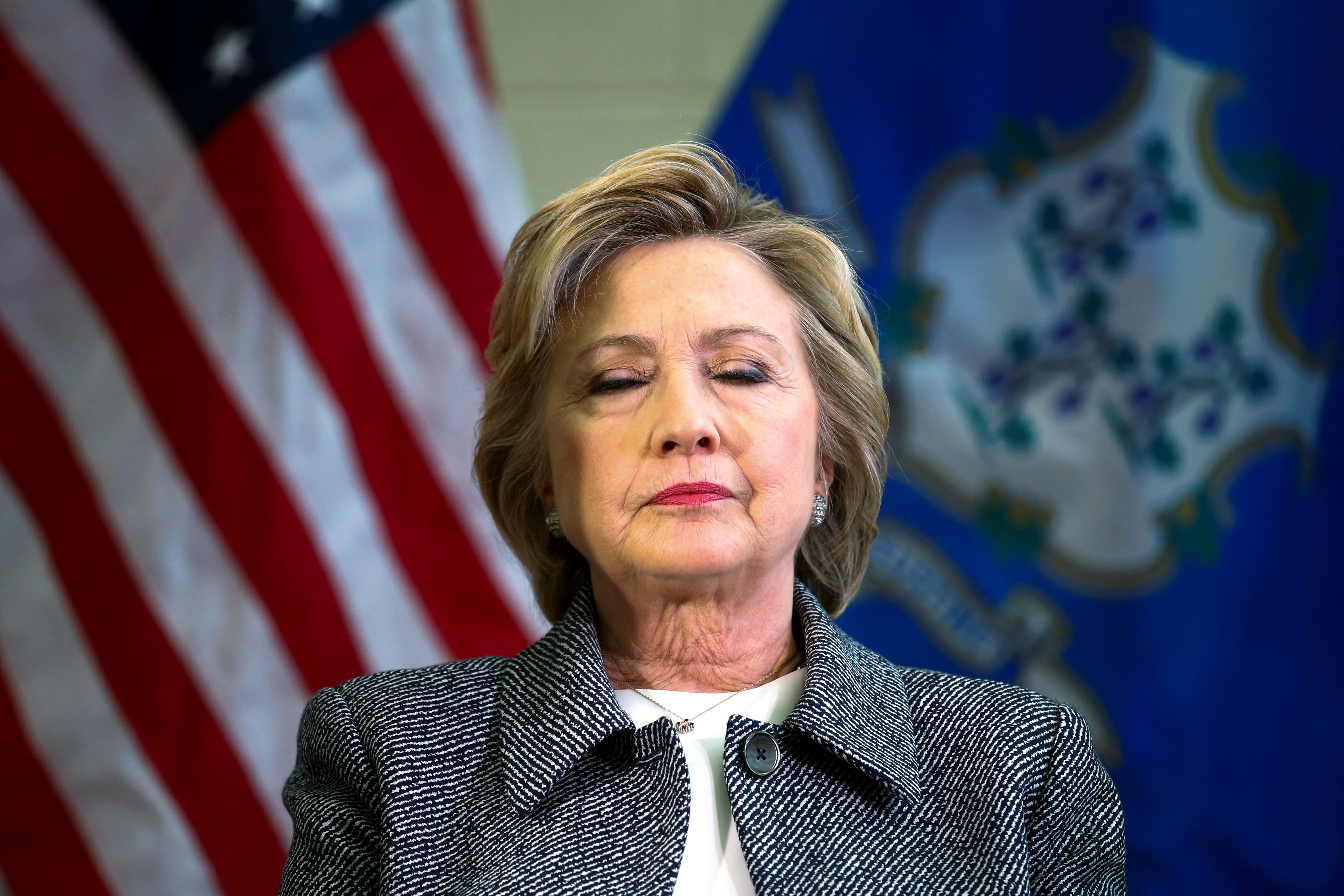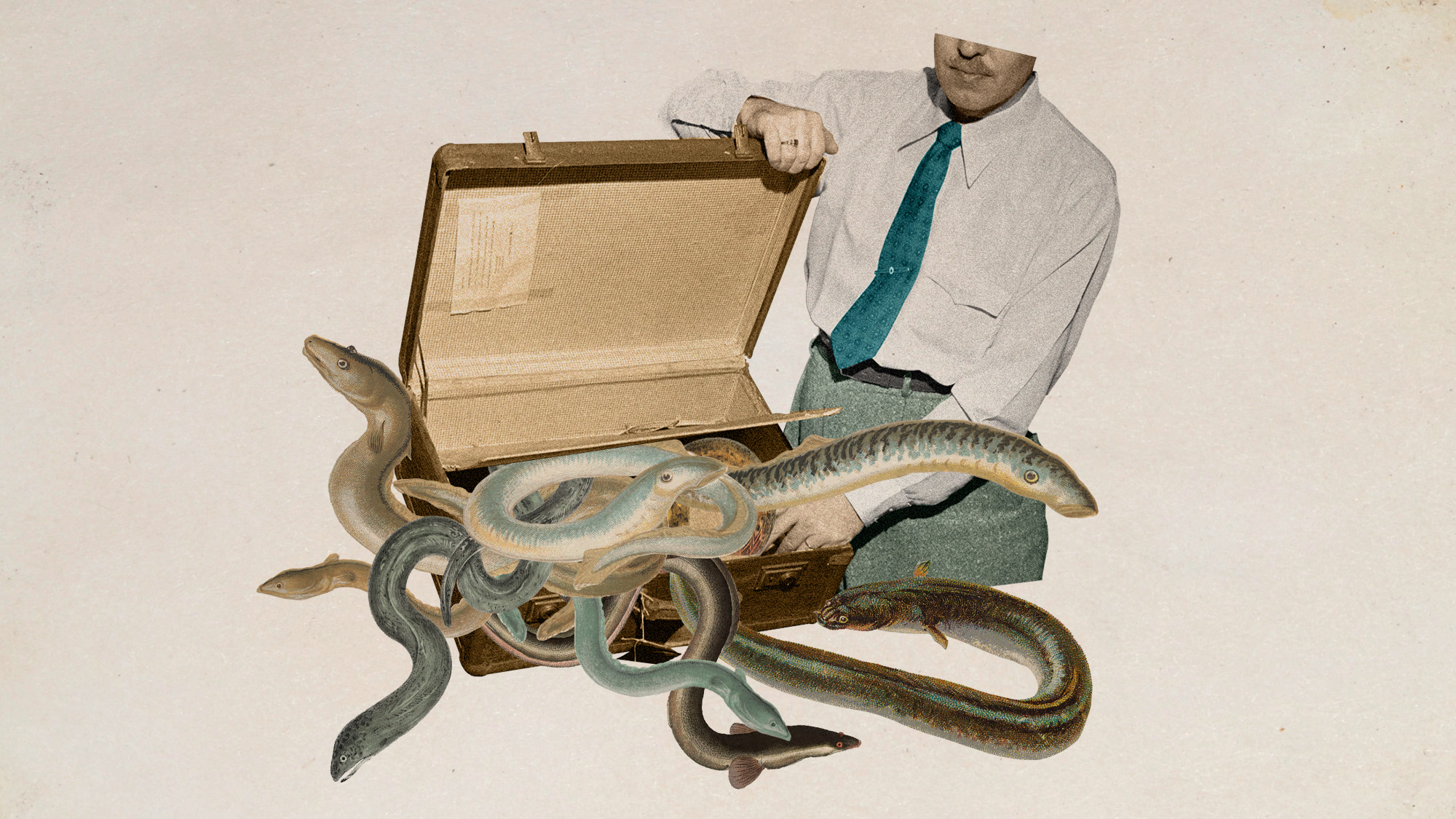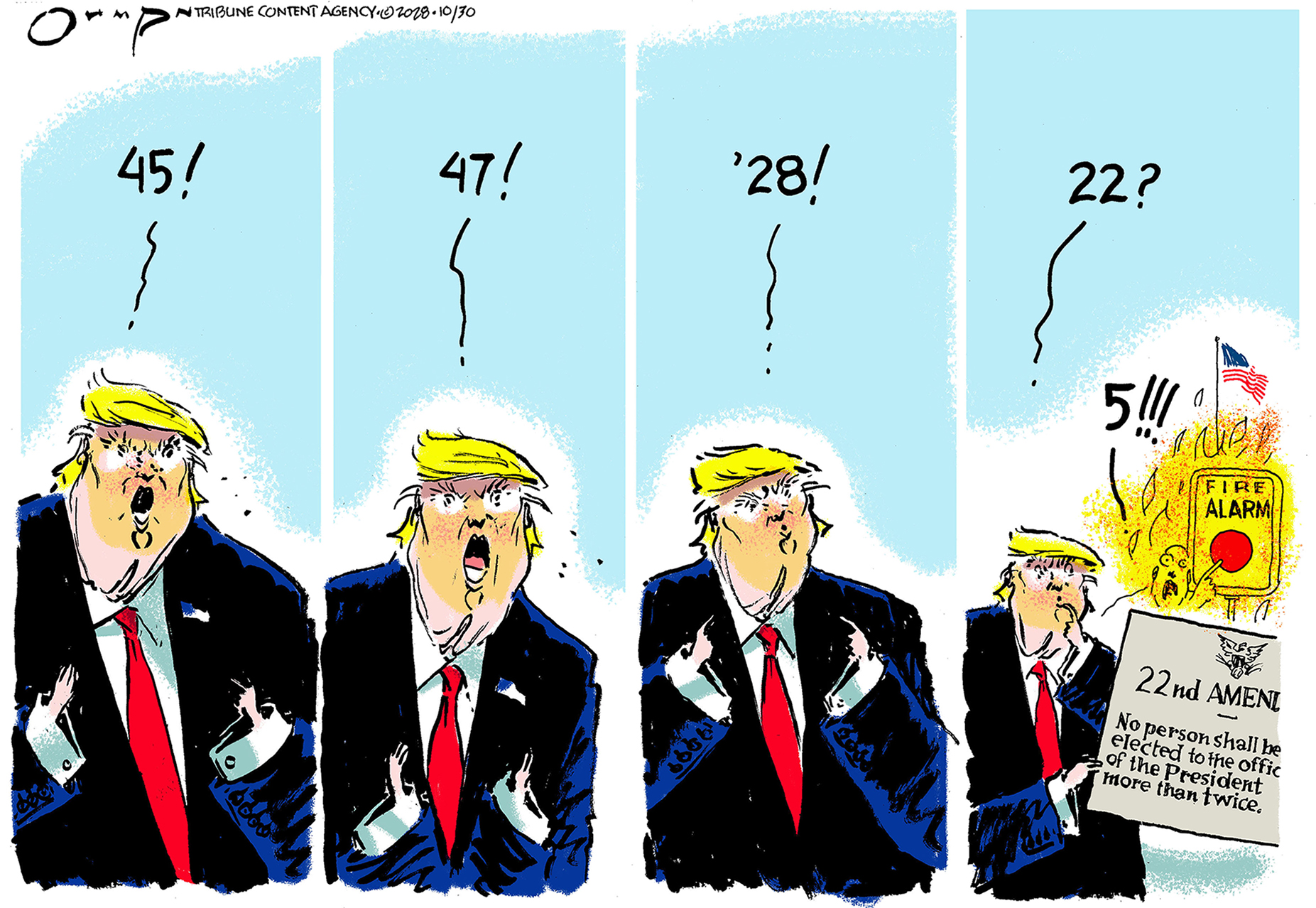How Hillary Clinton should redefine herself
To contrast with Donald Trump, she'll probably want to appear experienced, moderate, and presidential. Big mistake.


All it took was one poll of a few battleground states, and the internet went crazy. Donald Trump has redrawn the map! Hillary Clinton's negatives are as high as his! She could blow the election! This, of course, prompted rejoinders telling Democrats to stop panicking. Trump relies too much on white voters. Demography is destiny, and therefore Clinton is destined for a relatively easy victory. So long as she sticks to her winning issues matrix, she's all good.
The truth is somewhere in between.
On balance, Clinton has the odds in her favor — but nothing is assured. If there's one thing the Clinton camp surely learned from watching the GOP primaries, it's that sitting back and waiting for Trump's inevitable implosion is a good way to lose to him. But if there's a second thing they surely learned, it's that running a campaign focused on pointing out the many ways in which Trump transgresses the acceptable bounds of discourse is... a good way to lose to him. And so far, those are the main tacks that Clinton has taken — which is precisely why some of the more politically astute observers are getting nervous.
The Week
Escape your echo chamber. Get the facts behind the news, plus analysis from multiple perspectives.

Sign up for The Week's Free Newsletters
From our morning news briefing to a weekly Good News Newsletter, get the best of The Week delivered directly to your inbox.
From our morning news briefing to a weekly Good News Newsletter, get the best of The Week delivered directly to your inbox.
Clinton should win. But Clinton could lose. So what does she need to do to turn "should" into "will?"
This is the first of a series of columns that will endeavor to mansplain the answer to a woman with more political experience than virtually anybody else playing the game.
Now, if Clinton can't be sure to win by sitting on a lead, or by ruling Trump out of order, then she needs to seize the initiative. That means getting the public to pay attention to her, which requires them to believe they will hear something new. But one of Clinton's problems is that she's already well-known, and well-known for repeatedly — and unconvincingly — reinventing herself. So, supposedly, the public isn't going to be receptive to yet another attempt.
But while Clinton has been in the public eye a very long time, public perceptions of her have actually been quite variable. During President Obama's first term, Clinton was consistently more popular than the president, likely reflecting the fact that some Democrats were expressing their dissatisfaction with Obama's performance through buyer's remorse about the 2008 primaries. On the other hand, the slide in her favorability since the start of the 2016 primaries almost certainly reflects in part the effect of the contrast with the inspirational campaign of Bernie Sanders. So while who she is in the public's eye probably hasn't changed much over the years, how people feel about that person is highly context-dependent.
A free daily email with the biggest news stories of the day – and the best features from TheWeek.com
The good news for Clinton is that the context of the public's perception is about to change. After he loses the primary, Sanders will strongly support Clinton in the general election — if for no other reason than because it is plainly in his interest to do so. And whenever somebody wins their party's nomination, the country listens, even if only briefly, and gives them a chance to make their case. Clinton will have the opportunity to redefine herself yet again, for what is likely the last time. The question is how she uses it.
Clinton's first instinct will be to define herself through the qualities with which she is most comfortable. She's hardworking, sober, and experienced; she's moderate and presidential. And she'll say to herself that all of these qualities contrast beautifully with her opponent's outlandish, volatile, ignorant extremism.
None of that is wrong, exactly, but it's not right either. The problem is not only that every one of those qualities is something that can be spun as something not to like about her, nor that they allow her opponent to assume the mantle of change and of excitement. The larger problem is that they do not constitute a reintroduction at all. They are a restatement of everything everybody already knows, in precisely the terms that they already know them. They therefore reinforce people's current impression — which isn't a good one. And they are an invitation to tune her out.
Her second instinct is going to be to make herself into whatever she thinks voters want. They want someone hip? I can be hip! They want someone who is an agent of change? The one constant in my life is being an agent of change! You want to spice things up? I carry hot sauce in my handbag!
This instinct is even worse than her first instinct — because it reinforces another negative impression of Clinton (that she has no principles or identity beyond her own ambition) and, more importantly, because, let's face it, she's no good at pretending to be someone she isn't. In fact, she isn't even good at pretending to be who she actually is. She actually does carry hot sauce in her handbag. But the very transparent act of calculation in revealing that information makes even the truth inauthentic. Her ham-handed attempts to seem human only make her seem more inhuman.
If she isn't to squander a precious opportunity to reintroduce herself, yet again, to the American people, Clinton needs to ask herself a novel question: What is the version of myself that people want to listen to, and to vote for?
Not "what are people looking for" — that's too open-ended, too likely to lead her to pretend to be something she really isn't. Instead it's "what version of myself." What authentic side of me is the one that draws them to me, as opposed to pushing them away? And how do I get people to see that side of me?
I think I know the answer. But I don't think Clinton will like it.
Think about what brought her back from political death before. Why did tearing up in that cafe in New Hampshire work the wonder that it did? Because women identified with her, saw her as human. She struggled and suffered and had a hard time, and nobody understood. They saw her self-image as a fighter — and that she's exhausted by the fight. They saw her hard facade as something she had deliberately built up to accomplish what she needed to accomplish. The tears worked precisely because Hillary is not the kind of woman who cries in public.
Clinton's clenched-teeth determination never to show weakness has left her in a place where the only thing that humanizes her is showing her pain and vulnerability. The side voters need to see is the side that gets hurt. It's the side that gets disrespected, mocked, and — yes — cheated on. That's the Clinton who voters just might listen to, because they would know, then, that they are hearing from the real her — and they would know, as well, that it was costing her something to tell them whatever she had to say, so she must really want them to hear it.
And that's the point of showing vulnerability — not to elicit sympathy or a protective impulse, but to get voters to pay attention to her at all. Right now, the biggest risk for Clinton is that nobody is listening. They're tuning her out, like a teenager tunes out his mother when she tells him to clean up his pigsty of a room. She needs to get the voters in a frame of mind where they are willing to listen. Then she can deliver a message that might persuade.
I don't think this is generally true of successful female politicians. Margaret Thatcher did not win by showing her vulnerability. But Hillary Clinton isn't Margaret Thatcher — and, as noted, she has to stop wishing she were a person other than the one she is. In political terms, she's Coriolanus. She's seen as haughty, superior, condescending; of acting like she is owed the presidency, like it's her turn and we should be thankful to have her. She needs to show her wounds, the wounds she received fighting for us, even when we didn't appreciate it.
Unfortunately, unlike Coriolanus, Clinton can't just waltz into the marketplace and say, "I have some wounds upon me, and they smart to hear themselves remember'd." She'll have to be subtler than that.
Fortunately, I have a subtle strategy in mind.
This is the first article in a three-part series. You can read part two here and part three here.
Noah Millman is a screenwriter and filmmaker, a political columnist and a critic. From 2012 through 2017 he was a senior editor and featured blogger at The American Conservative. His work has also appeared in The New York Times Book Review, Politico, USA Today, The New Republic, The Weekly Standard, Foreign Policy, Modern Age, First Things, and the Jewish Review of Books, among other publications. Noah lives in Brooklyn with his wife and son.
-
 Eel-egal trade: the world’s most lucrative wildlife crime?
Eel-egal trade: the world’s most lucrative wildlife crime?Under the Radar Trafficking of juvenile ‘glass’ eels from Europe to Asia generates up to €3bn a year but the species is on the brink of extinction
-
 Political cartoons for November 2
Political cartoons for November 2Cartoons Sunday's political cartoons include the 22nd amendment, homeless camps, and more
-
 The dazzling coral gardens of Raja Ampat
The dazzling coral gardens of Raja AmpatThe Week Recommends Region of Indonesia is home to perhaps the planet’s most photogenic archipelago.
-
 Millions turn out for anti-Trump ‘No Kings’ rallies
Millions turn out for anti-Trump ‘No Kings’ ralliesSpeed Read An estimated 7 million people participated, 2 million more than at the first ‘No Kings’ protest in June
-
 Ghislaine Maxwell: angling for a Trump pardon
Ghislaine Maxwell: angling for a Trump pardonTalking Point Convicted sex trafficker's testimony could shed new light on president's links to Jeffrey Epstein
-
 The last words and final moments of 40 presidents
The last words and final moments of 40 presidentsThe Explainer Some are eloquent quotes worthy of the holders of the highest office in the nation, and others... aren't
-
 The JFK files: the truth at last?
The JFK files: the truth at last?In The Spotlight More than 64,000 previously classified documents relating the 1963 assassination of John F. Kennedy have been released by the Trump administration
-
 'Seriously, not literally': how should the world take Donald Trump?
'Seriously, not literally': how should the world take Donald Trump?Today's big question White House rhetoric and reality look likely to become increasingly blurred
-
 Will Trump's 'madman' strategy pay off?
Will Trump's 'madman' strategy pay off?Today's Big Question Incoming US president likes to seem unpredictable but, this time round, world leaders could be wise to his playbook
-
 Democrats vs. Republicans: who are US billionaires backing?
Democrats vs. Republicans: who are US billionaires backing?The Explainer Younger tech titans join 'boys' club throwing money and support' behind President Trump, while older plutocrats quietly rebuke new administration
-
 US election: where things stand with one week to go
US election: where things stand with one week to goThe Explainer Harris' lead in the polls has been narrowing in Trump's favour, but her campaign remains 'cautiously optimistic'
